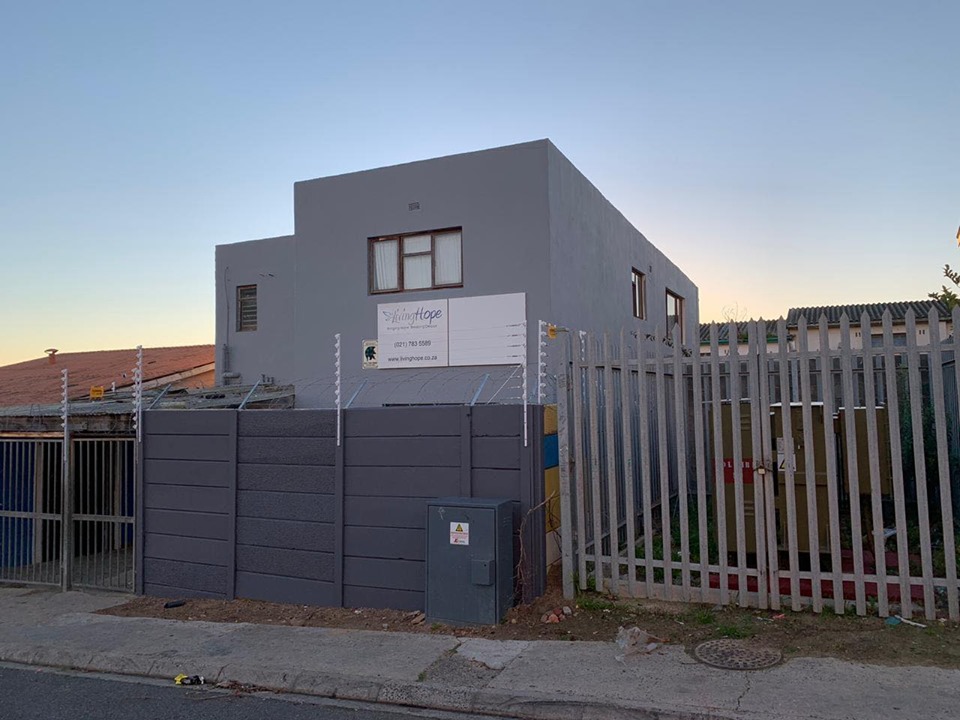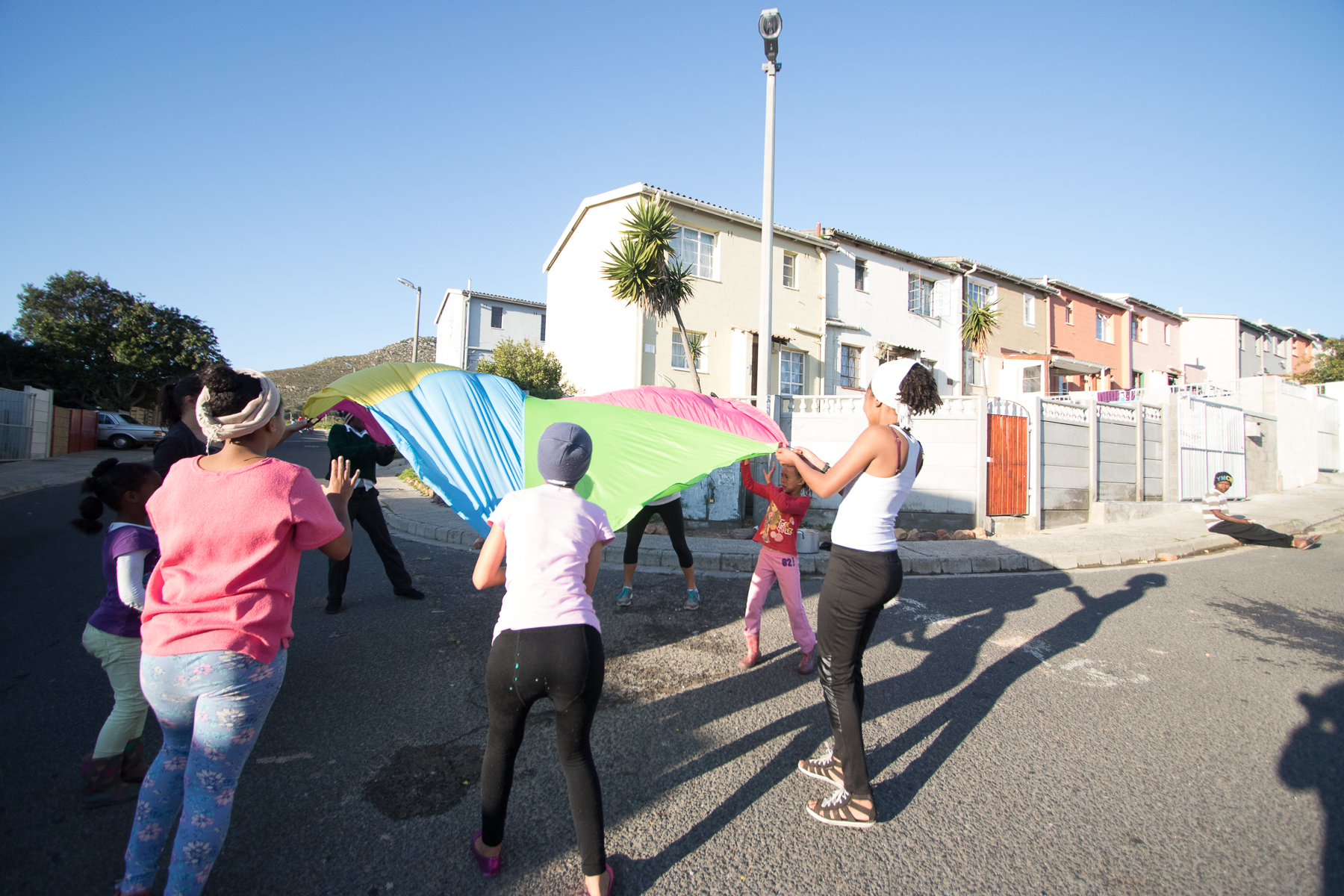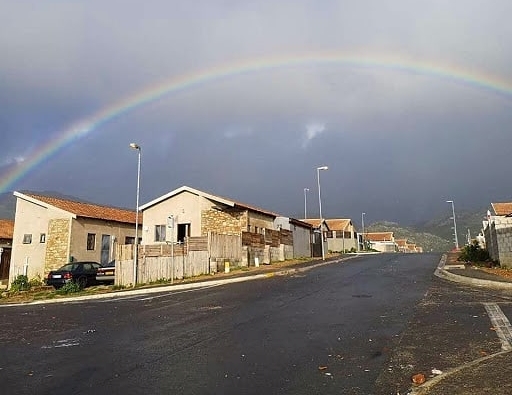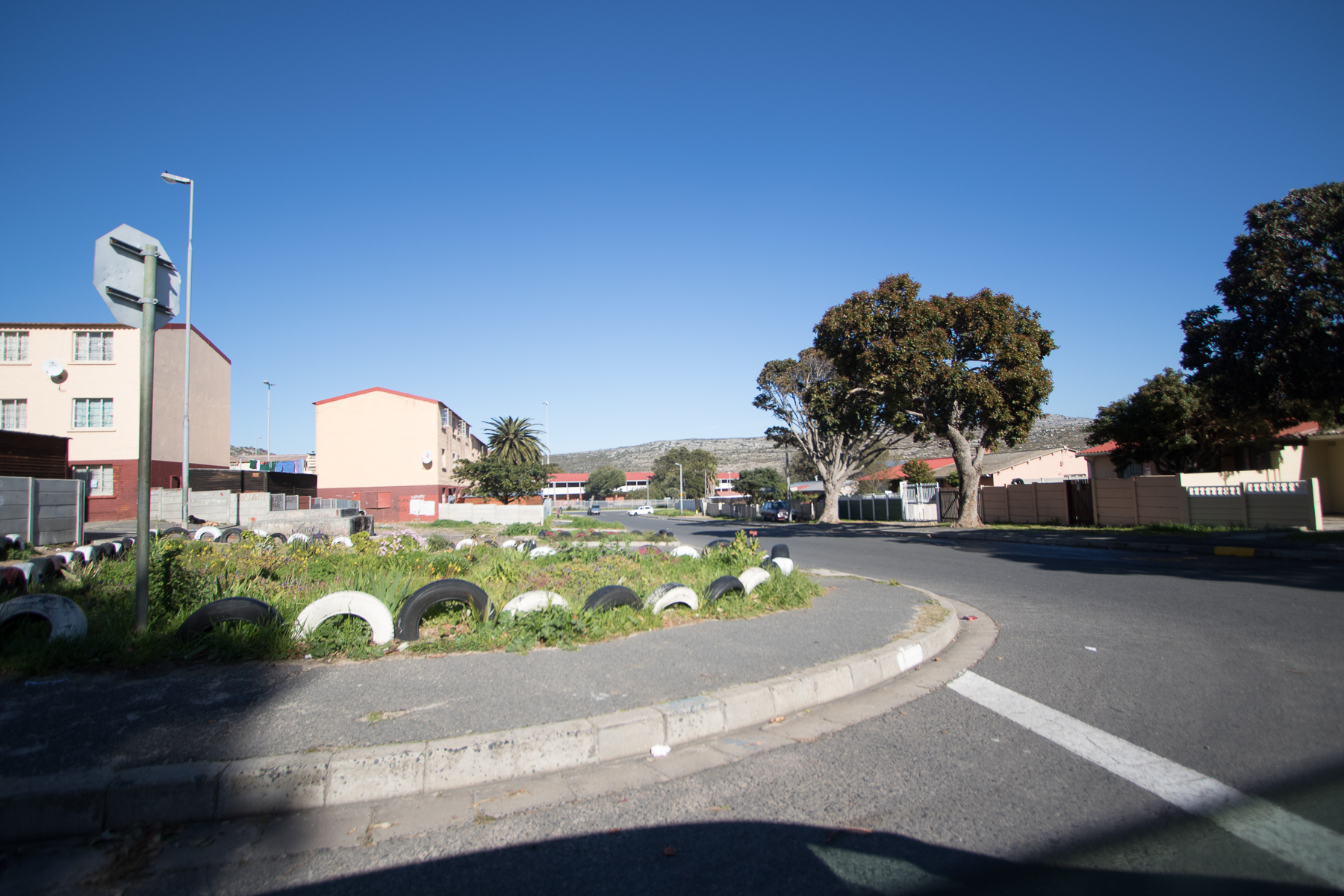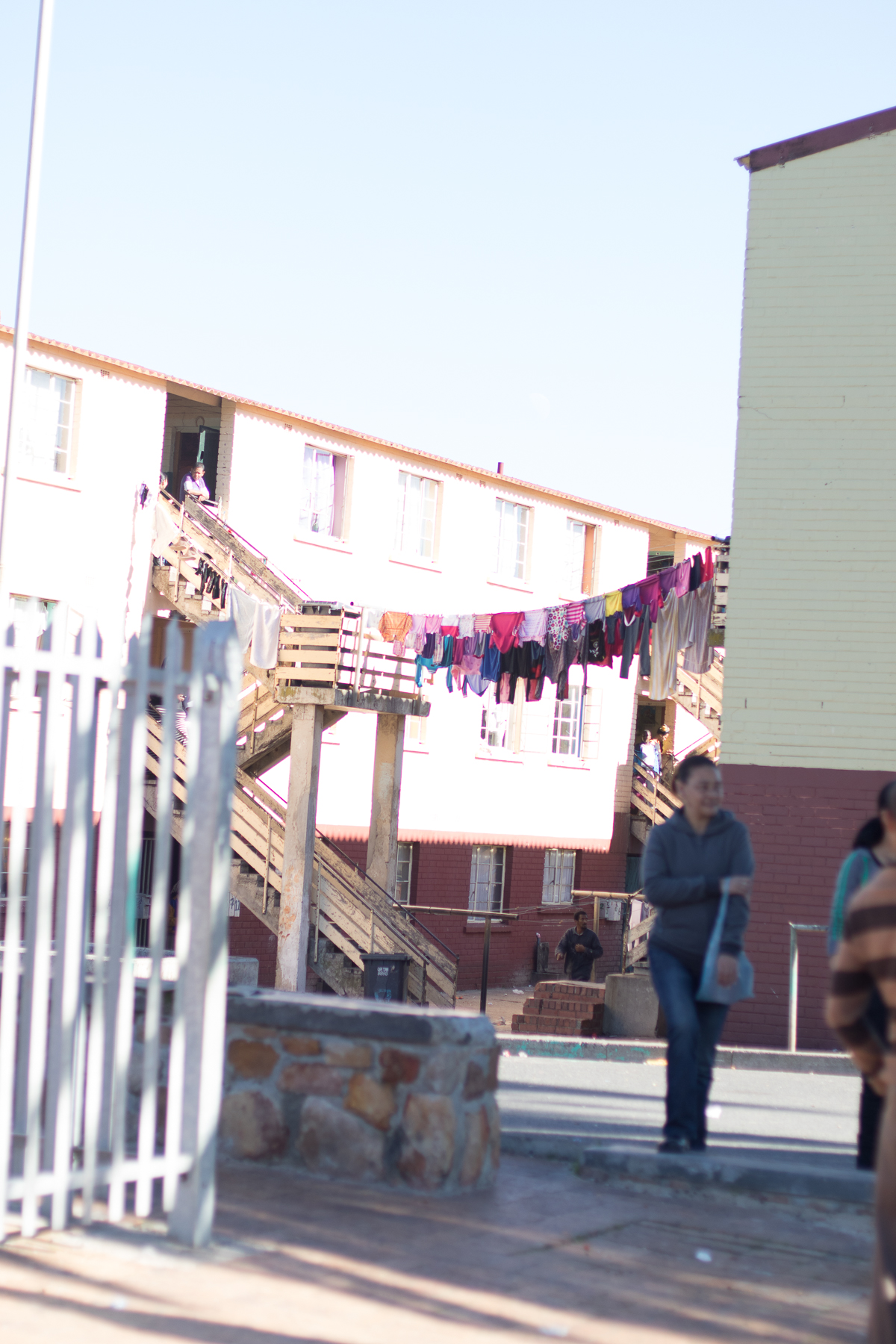Ocean View
Address: 21 Colombia Rd, Ocean View, Cape Town
Located about forty-five kilometres from Cape Town, Ocean View township was formed in the late 1960s to 1970s during the Group Areas Act; all coloured people were forcefully relocated from the ‘white communities’ of Simon’s Town, Fish Hoek and Noordhoek to this settlement. It was ironically named Ocean View, with residents being removed from their previous sea-side homes and views. The areas in which they originally lived had a great UBUNTU spirit as a people, they supported each other and lived in harmony, but all of that was destroyed when they were being forcibly removed. As a result, its history is embedded in apartheid, and there is still much bitter resentment among many people.
Today 42,000 people live in Ocean View in brick houses and apartments. Housing in this community is a problem, though most have a roof over their heads many homes have extended families living with them and the houses are overcrowded. They have what is called “Backyard Dwellers” where adult children illegally build or buy a Wendy house and put it up in their parents’ yard. This brings with it so many other issues and problems. Life is a struggle for the many residents here, having to face the challenges of huge unemployment, widespread drug use, alcoholism, gangs, prostitution, dysfunctional families and violence. Many of the problems in the community stem from families who are struggling and where fathers are absent Thousands of lives are being destroyed by the local drug culture, where a drug called tik (crystal meth) is being sold for as little as R10 (less than $1). Many children are embroiled in this drug, with the issue affecting all ages and generations within society. Gangs and violence stem from the drug problem; Ocean View has a high rate of crime and gangs are a main source of violence in the community as they attempt to manage the drug trade and prostitution industry.
For decades the coloured community has been caught stranded between the whites and the blacks, and so has been neglected for years. Some claim to have been ‘not white enough’ during apartheid and ‘not black enough’ now, and as a result, many still feel abandoned with no hope or ambition for the future. This attitude is a major cause for the struggles Ocean View faces. Youth and adults alike lack hope and goals for improving their lives by getting an education or working, and so problems such as unemployment grow. People feel forced to look at other sources of income such as crime, drugs and prostitution just to make ends meet. HIV is also a problem; there is a lot of stigmas attached to it and so it is not discussed openly. The estimate for infection rate is about 8-13.
Ocean View has a number of facilities but is still extremely ill-equipped for the needs of the community; currently, these include a number of schools, a library, community centre, clinic and a range of small shops. There are almost 200 churches and church groups within Ocean View but these are limited in effectiveness by division and factions, and many live a Sunday-life focused on rules and a week-life where they behave as they wish. The main language spoken within the township is Afrikaans, but most also speak English.
Although Ocean View is a community ravaged by social problems, some residents are beginning to stand up and fulfil the potential that has been suppressed for decades.
What this community need is organizations like Living Hope offering them more support through various development programmes and capacity building of those smaller organizations and individuals who want to make a difference. Ocean View needs programmes that will speak to the problem of dysfunctional families, boys not having role models, parents who are failing to lead their families and being able to access opportunities so they can thrive.
